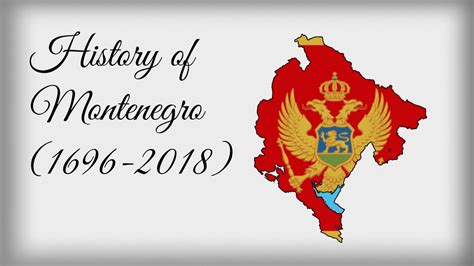Explore the rich history of Nigeria from pre-colonial times to modern independence movement. Learn about colonization, slave trade, and European explorers.
Pre-colonial Nigeria
Contents
Pre-colonial Nigeria refers to the history and culture of Nigeria before European influence. It was a time of diverse and complex societies, with communities practicing various forms of governance, trade, and agriculture. The region was home to a rich and vibrant mix of ethnic groups, each with their own unique language, customs, and traditions. At this time, the people of Nigeria lived in kingdoms, city-states, and other organized communities, where they engaged in farming, fishing, and hunting for their livelihoods. These societies had well-developed political structures and legal systems, and some even had elaborate systems of written communication.
One of the most significant aspects of pre-colonial Nigeria was the extensive trade networks that existed within and outside the region. Nigerian communities were engaged in trade with neighboring regions and even distant lands such as North Africa and the Middle East. This trade brought wealth, cultural exchange, and technological advancement to the indigenous peoples of Nigeria, contributing to the prosperity and development of their societies.
The religious and spiritual beliefs of pre-colonial Nigeria were diverse and varied across different communities. While some practiced traditional indigenous religions, others had adopted Islam or Christianity through contact with Arab and European traders. These belief systems played a central role in the people’s daily lives, shaping their values, social customs, and rituals.
Overall, the pre-colonial era in Nigeria was a time of rich heritage, diversity, and ingenuity. The societies that existed before European colonization were sophisticated and advanced, with their own unique contributions to the cultural, economic, and political landscape of the region.
Arrival of European explorers
When European explorers first arrived in Nigeria in the late 15th century, the country was already home to a number of diverse and sophisticated societies. These societies had developed complex political and social structures, established trade routes, and had rich cultural traditions. However, the arrival of European explorers marked the beginning of significant changes for Nigeria.
The arrival of the Portuguese in the late 15th century, led by the famous explorer Vasco da Gama, had a profound impact on Nigeria. The Portuguese were the first Europeans to establish contact with the people of Nigeria, and they quickly began to establish trade networks along the coast. This interaction with European explorers led to the introduction of new goods, technologies, and ideas to Nigeria, but it also ultimately paved the way for the country’s colonization.
The arrival of European explorers also brought about significant challenges for the people of Nigeria. The slave trade, which was already well-established in other parts of Africa, expanded dramatically with the arrival of European explorers. Many Nigerians were captured and sold into slavery, leading to great suffering and loss for countless individuals and families.
Furthermore, the presence of European explorers and traders began to disrupt the existing political and social structures in Nigeria. European influence often exacerbated existing rivalries and conflicts between different Nigerian societies, leading to increased instability and insecurity.
In conclusion, the arrival of European explorers in Nigeria had a lasting impact on the country. While it brought new opportunities and ideas, it also led to significant upheaval and suffering for the people of Nigeria.
Colonization and the slave trade
The 19th century was a pivotal time in the history of Nigeria as it marked the beginning of colonization and the transatlantic slave trade. European explorers began to arrive in Nigeria in the late 18th century, and their interest in the region was largely fueled by the lucrative trade in human beings. The slave trade had a devastating impact on the people of Nigeria, as countless men, women, and children were forcibly captured and sold into slavery, leading to the decimation of entire communities and the loss of countless lives.
Colonization also had a profound impact on Nigeria, as European powers sought to expand their influence and control over the region. The British were particularly aggressive in their quest for dominance, and by the late 19th century, they had established a firm foothold in Nigeria, laying the groundwork for their eventual colonial rule. This period of colonization saw the imposition of new laws, taxes, and administrative systems that disrupted traditional ways of life and undermined the sovereignty of the Nigerian people.
The legacy of colonization and the slave trade continues to reverberate throughout Nigeria to this day. The scars of this dark chapter in history are still visible in the social, economic, and political landscape of the country, and the impact of these events continues to shape the story of Nigeria. However, despite the profound challenges and hardships faced by the Nigerian people, the country has shown incredible resilience and determination in overcoming the legacies of colonization and the slave trade, and it continues to strive for a brighter, more hopeful future.
Nigerian independence movement
Nigerian independence movement
The Nigerian independence movement was a significant period in the history of Nigeria, marking the country’s struggle for freedom from British colonial rule. The movement was fueled by a desire for self-governance and autonomy, as well as a response to the injustices and inequalities imposed by the colonial system. The road to independence was marked by activism, protests, and political mobilization, as Nigerians fought for their rights and sovereignty.
Key figures in the independence movement included leaders such as Nnamdi Azikiwe, Obafemi Awolowo, and Ahmadu Bello, who played pivotal roles in organizing and advocating for the independence cause. These leaders utilized various strategies, including forming political parties, engaging in diplomatic negotiations, and mobilizing public support, to advance the goal of independence.
The independence movement culminated in Nigeria gaining its sovereignty on October 1, 1960, when the country officially became an independent nation. This milestone marked the end of decades of colonial rule and set the stage for Nigeria to chart its own course as a self-governing nation. The independence movement remains a crucial part of Nigeria’s history, symbolizing the resilience and determination of the Nigerian people in the pursuit of freedom and self-determination.
Following independence, Nigeria faced a new set of challenges, including governance, nation-building, and socio-economic development. The legacy of the independence movement continues to shape the country’s political landscape and remains an integral part of Nigerian identity and national pride.
Modern Nigeria
Modern Nigeria has seen significant changes and developments in various aspects of society, economy, and politics. One of the major influences in shaping modern Nigeria was the era of colonial rule, with the country being under British control for several decades. This period had a lasting impact on the cultural, social, and political landscape of the nation, and it laid the groundwork for many of the issues and challenges that Nigeria faces today.
Since gaining independence in 1960, Nigeria has experienced periods of political instability, military rule, and civil unrest. The country has also grappled with issues such as corruption, ethnic tensions, and economic inequality. However, in recent years, there have been efforts to address these challenges and move towards a more stable and prosperous future.
One of the key developments in modern Nigeria has been the growth of the economy, particularly in sectors such as telecommunications, banking, and entertainment. This has led to a burgeoning middle class and increased access to technology and consumer goods for many Nigerians. Additionally, the country has made strides in developing its infrastructure and expanding access to education and healthcare.
Another notable aspect of modern Nigeria is its vibrant and diverse cultural scene. The country is known for its rich traditions, music, and art, which have gained international recognition. The Nigerian film industry, often referred to as Nollywood, has become one of the largest in the world, producing a wide range of films that have captivated audiences both at home and abroad.
Despite the many challenges that Nigeria has faced, it is clear that the country has made significant progress in various areas and continues to work towards a better future for its people. With a young and rapidly growing population, Nigeria has the potential to become a major player on the global stage and is poised to make a significant impact in the years to come.













